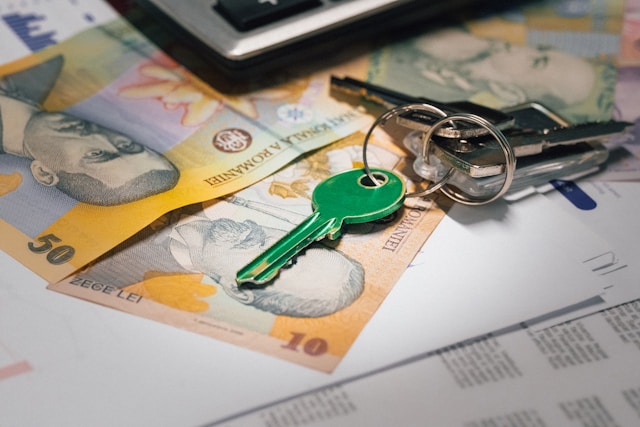Being a homeowner is a significant achievement for most people in the UK. However, having a second home is a luxury that only a few can afford. But with the right financial strategy, it might be more attainable than you think. Here, we delve into the best financial products that can help you secure that dream property – your second home.
Mortgage Products
When you start thinking about buying a second home, one of the first things you should consider is the mortgage product. A mortgage is a long-term loan that you can obtain from a bank or other lenders to buy property. However, not all mortgages are the same, and the key is to find one that fits your financial needs.
Cela peut vous intéresser : What impact does the UK’s credit scoring system have on securing commercial loans?
There are different types of mortgages, each with their unique features and interest rates. For instance, a fixed-rate mortgage offers a constant interest rate for a specific period, making your repayment predictable. On the other hand, an adjustable-rate mortgage (ARM) offers interest rates that can fluctuate based on market conditions, which may lower your monthly payment.
Also, you can consider an interest-only mortgage, where you only pay the interest on the loan for a certain period, not the principal. This could be a good option if you plan to sell the property before the interest-only period ends.
En parallèle : How can UK millennials use Lifetime ISAs to fund their first property purchase?
When choosing a mortgage product, consider your income, your ability to meet the monthly repayments and the total amount you’ll pay over the loan term.
Equity Release Schemes
If you’re a homeowner, you can use the value of your existing property to help finance the purchase of a second home. This is known as equity release.
Equity release schemes allow you to unlock the value tied up in your home without having to move. You can either get a lump sum, regular payments or a combination of both. This can be useful if you have substantial equity in your first property, but lack the income to get a second mortgage.
However, it’s essential to understand the cost of equity release, as it can be high, and it may also affect your tax position and eligibility for means-tested benefits.
Buy-to-Let Mortgages
A buy-to-let mortgage is a good option if you want to invest in a second property to rent out. This type of loan is specifically designed for properties that will be let to tenants.
A key feature of buy-to-let mortgages is that the lender will assess the loan based on the property’s potential rental income, not the borrower’s income. This can make it easier to secure a mortgage if you have a high deposit and the rent is likely to cover the mortgage repayments plus a certain percentage.
However, keep in mind that the interest rates on buy-to-let mortgages are usually higher than residential mortgages, and you may need a larger deposit.
Second Home Mortgages
Another option to finance your second home is through a second home mortgage, which is different from a mortgage for a primary residence or a buy-to-let mortgage.
The lender will consider your income and ability to pay both mortgage repayments when assessing the application. Therefore, it’s crucial to have a good credit score, a stable income, and a low debt-to-income ratio.
Interest rates on second home mortgages are typically higher than for a primary residence, but lower than buy-to-let mortgages. Also, you’ll need a larger deposit, typically around 25% of the property’s value.
Investment Opportunities
Beyond mortgages and equity release, you may also consider other financial products to fund your second home purchase.
One option is investing in stocks, bonds, or mutual funds. These investments can potentially deliver significant returns over time, which you can use as a deposit for your second home. However, they also come with risks, and the value of your investment can go down as well as up.
Alternatively, you can consider peer-to-peer lending or crowdfunding platforms that allow you to invest your money and earn interest. This could be a way to raise funds for your second home, especially if you can afford to lock away your money for a while.
However, always remember to seek professional advice before committing to any investment, as every financial decision comes with potential risks and rewards.
Additional Costs and Taxes
When planning to buy a second home, it’s crucial to consider the additional costs and taxes involved. For example, stamp duty is a significant cost that can affect your budget. This is a tax payable when you buy property in the UK. The rate of stamp duty varies, and it’s typically higher for second homes.
Furthermore, you’ll also need to consider capital gains tax if you decide to sell your second property. Capital gains tax is a tax on the profit when you sell (or ‘dispose of’) something that’s increased in value. The tax rate depends on your income and the amount of gain.
Another cost to factor in is the insurance for your second home. Most insurance companies charge higher premiums for second homes, especially if they’re rented out or left empty for long periods.
Moreover, if your second home is a holiday home, there might be specific local taxes and fees to pay, depending on the location.
Potential repairs and ongoing maintenance costs should also not be overlooked. These can significantly add to the overall cost of owning a second home.
Financial Advice for Buying a Second Home
While buying a second home can be an exciting prospect, it’s essential to make informed decisions and seek professional advice. A Forbes advisor or other financial experts can guide you through the process and ensure you’re aware of all the potential costs, risks, and benefits.
The advisor can help you understand the various mortgage products available, how equity release works, the implications of different interest rates, and the potential risks and rewards of various investment opportunities. They can also assist you with tax planning, including understanding stamp duty, capital gains tax, and other potential tax liabilities.
You should also seek advice from a legal professional. They can help you understand all the legal implications of buying a second property, including the conveyancing process, property rights, and obligations as a landlord if you plan to rent out the property.
Lastly, consider your long-term financial goals. Buying a second home is a significant investment and commitment that can impact your financial situation for many years. Therefore, it’s important to ensure that it fits into your overall financial plan and aligns with your long-term goals.
Conclusion
Buying a second home in the UK is no small feat. It requires careful planning, a clear understanding of financial products, and a considerable financial commitment. From choosing the right mortgage product to understanding the cost of equity release, assessing potential investment opportunities, and considering additional costs and taxes, there is a lot to consider.
Whether you plan to use the second home as a holiday home, a rental property, or simply as an investment property, it’s important to evaluate your financial ability and consider all potential costs and implications. Equipped with the right knowledge and expert advice, you can ensure you make the best decision for your financial future. From a place to create memories with your family to a source of rental income, a second home can be a valuable asset and a worthwhile investment if managed correctly.






